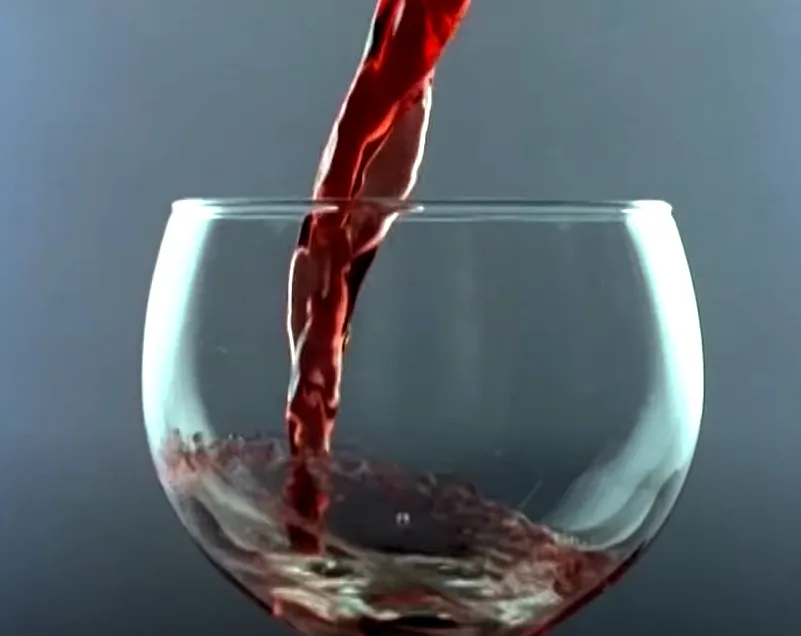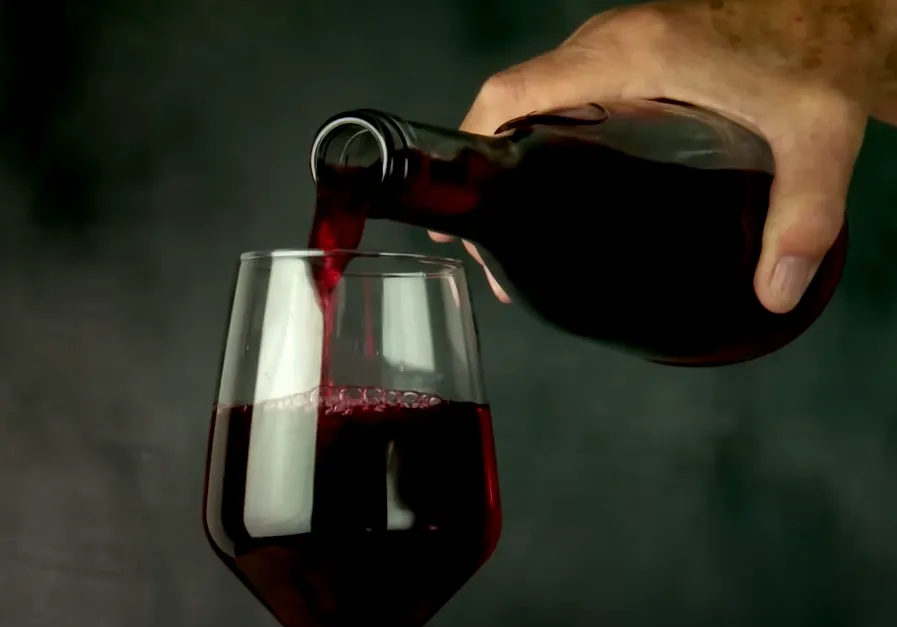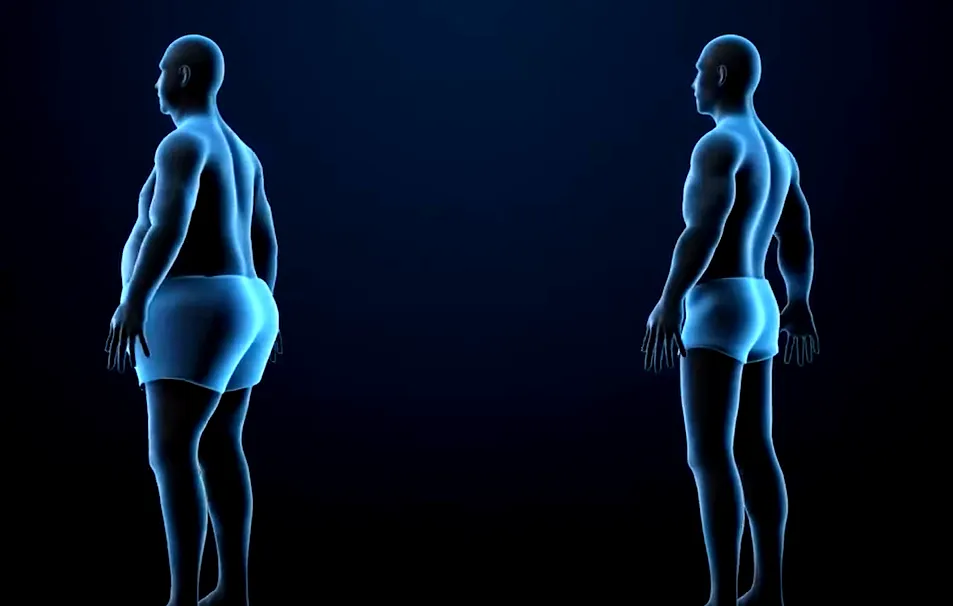- It contains a compound called resveratrol, which has fat-burning properties
- Moderate consumption of red wine has been linked to a lower likelihood of being overweight
- It is rich in antioxidants, including resveratrol, which may benefit blood sugar control, heart health, and inflammation
- Low-calorie wine options are available for those who want to enjoy wine without compromising their weight-loss goals
- It’s important to consume alcohol, including red wine, in moderation as part of a balanced lifestyle
After a busy day, it’s tempting to unwind with a glass of wine, but you may worry about the calorie content.
There are low-calorie options that will stay within your weight loss goals.
White wine is generally lower in calories than red wine, with an average of 121 calories per 5-ounce serving.
Choosing a dry white wine, such as Sauvignon Blanc or Pinot Grigio, can reduce the calorie count even further.
Which is the best wine for weight loss?
But what about red wine?
Can we drink red wine for weight loss?
This is because red wine contains a compound called resveratrol, which has been shown to have fat-burning properties.
But, it’s essential to keep in mind that excessive consumption of alcohol can lead to weight gain.

Regarding weight loss, it’s important to remember that alcohol should be consumed in moderation.
The recommended daily limit for women is one drink per day, while men should aim for no more than two drinks per day.
Additionally, it’s essential to maintain a healthy diet and exercise to achieve your weight loss goals.
So, go ahead and enjoy that glass of wine, but remember to do so in moderation and as part of a balanced lifestyle.
How Does Red Wine Affect Weight Loss?
Red wine is the go-to relaxing alcoholic beverage that many people lean towards, so fully understanding how this impacts your weight loss journey is important.
Red wine is essentially fermented grapes and is therefore loaded with antioxidants.
Red wine nutrition
- A 5-ounce (148-mL) serving of red wine contains:
- Calories: 125
- Protein: 0 grams
- Fat: 0 grams
- Carbs: 4 grams
- Sugar: 1 gram
- Alcohol: 16 grams

It is good to remember that various brands of red wine are available, so the nutritional content would differ accordingly.
The secret to red wine is that it is rich in resveratrol and other antioxidants.
Resveratrol, specifically, is a polyphenol found in red wine that plays a role in transforming stubborn white fat into burnable brown fat.
A study carried out at Harvard found a connection between wine and weight loss.
Researchers examined 20,000 women and found that those who drank wine in moderation every day were 70% less likely to be overweight.

Even more interesting, the weight could be shredded off if you downed your wine before bed.
A study conducted in 2012 that observed the effects of resveratrol on bees, found that the compound helps curb appetite.
It could be that wine discourages late-night snacking by satisfying your taste buds.
This compound and the antioxidants may benefit blood sugar control, heart health, and inflammation.
Furthermore, consuming red wine in moderation may help prevent excess weight gain.
Trials in humans have also shown us that alcohol consumption, in moderation, of course, may help stabilize blood sugar.
They are making it easier to manage weight.
The one fact that remains steadfast in weight loss is that everything in moderation is critical.
So, a glass of red wine will provide you with much-needed antioxidants, but you need more to help your weight loss journey.
What Is Low-Calorie Wine?
Low-calorie wine—those words sound so good to hear, but could this be true?
Most of the calories found in the wine come from the alcohol content.
The other contributors are sugar and carbohydrates.
When considering weight loss goals, red wine is much better than sparkling wine.
Moderate alcohol consumption is not hampering your weight loss, said a health expert.

Wine manufacturers realized that they could include a whole different target market: the health-conscious and calorie counters among us.
A new range of low-calorie wines is now available for those who would still like to indulge without the accompanying guilt trip.
Harvard Health Publishing publishes a research page that mentions a glass of wine for women and two glasses for a healthy man.
Low-calorie white wines are likely to have a lower alcohol content than red wines.
This makes it a low-calorie alcoholic drink compared to other kinds of wines.
Dry, sparkling white wines are also a great option if you are looking to lose weight.
Here’s a list of some of the best wine to drink for weight loss to give you an idea of how to make those choices easier:
- Riesling (White) A white Riesling is usually a good choice for weight watchers, as every five ounces contains about 120 calories and about five carbs.
- Pinot Grigio (White)
- Chardonnay (White)
- Pinot Noir (Red)
- Merlot (Red)
- Cabernet Sauvignon (Red)
Does Red Wine for Weight Loss Work?
There is much debate on this topic.
As we know, wine contains calories, and overconsumption could be more problematic than beneficial.
But, over the years, information gathered suggests a link between stubborn belly fat and red wine. So, what is this link?
According to a study, chemicals in grapes slow down the growth of existing fat cells.
They also slow down the formation of new fat cells.

This, in turn, helps boost the fatty acid metabolism in the liver cells.
Enhancing the burning of fat in the liver helps with weight management, especially among overweight people.
Due to the plant-derived chemical known as resveratrol in red wine, it is known that red wine has the following benefits to offer.
Benefits of Red Wine
- Reducing the bad cholesterol in your blood.
- Lowering your risk of blood clotting and inflammation, which consequently reduces your risk of heart disease
- Burning belly fat and decreasing inflammation tend to be associated with obesity.
The last benefit mentioned sounds precisely like what wine lovers want to hear.
Take caution with how much is consumed, though, because this lies in the fine balance of things as to whether you gain or lose weight.
Red Wine and Weight loss: Are they linked?

Fortunately, you don’t need to completely eliminate red wine from your diet if you want to lose weight.
There are several strategies you can follow to enjoy red wine without impeding your weight loss progress.
Firstly, it’s important to stick to a single serving of wine, which is equivalent to 5 ounces or 150 mL.
By adhering to this portion size, you can still indulge in a glass of red wine without consuming excessive calories.
Secondly, it is crucial to track your calorie intake.
If you can incorporate a serving of wine into your daily calorie allowance and maintain a calorie deficit, you can continue to lose weight while enjoying your favorite red wine.
Additionally, it is advisable to avoid dessert wines.
These types of wines tend to be sweeter and contain higher amounts of sugar and calories per serving.
By steering clear of dessert wines, you can minimize your calorie intake while savoring a glass of red wine.
Ultimately, as long as you are mindful of your portion sizes and consume wine in moderation, it should not significantly impact your weight loss journey.
How to Drink Red Wine for Weight Loss
Red wine consumption has been associated with various health benefits, including potential weight loss effects.
However, it’s important to understand how to consume red wine in a way that supports your weight loss goals.
Here are some tips on how to drink the healthiest red wine for weight loss:
Timing Your Red Wine Consumption
When it comes to weight loss, timing is everything.
It’s good to consume the best red wine for health with or after a meal, as this can help slow down the absorption of alcohol into your bloodstream.
Drinking red wine on an empty stomach may lead to a quicker rise in blood alcohol levels and potentially increase calorie intake.
Determining the Right Serving Size
To maximize the potential weight loss benefits of red wine, it’s important to consume it in moderation.
The recommended serving size of red wine is 5 ounces (148 mL).
This allows you to enjoy the taste and benefits of red wine without overindulging in calories.
How Much and How Often To Drink Wine for Optimal Benefits
Moderate red wine consumption has been linked to various health benefits, including potential weight loss effects.
For women, the recommended daily limit is one drink per day, while men should aim for no more than two drinks per day.
This ensures that you’re not consuming excessive calories from alcohol while still enjoying the potential benefits of red wine.
It’s important to note that while red wine may have potential weight loss benefits, it should be part of a balanced lifestyle that includes a healthy diet and regular exercise.
Relying solely on the healthiest wine for weight loss is not recommended, as it’s essential to maintain a calorie deficit and make overall healthy lifestyle choices.
Now, we will see which red wine is best for weight loss!
Best Wine for Weight Loss Plan

The best red wine for weight loss would be the healthiest and the one that gives you the most health benefits.
Do you know which red wine boosts metabolism and which red wine burns fast?
With these glasses of wine, you will maintain your weight loss goals.
This includes Pinot Noir (red wine), rated as the healthiest wine because of the high levels of resveratrol.
It is made of grapes with thin skin, has low sugar, fewer calories, and a low alcohol content.
Sagrantino, made in Italy, contains the highest concentration of antioxidants and is packed with tannins.
Ultimately, the best red wine for diet is a dry wine like Pinot Grigio, Sauvignon Blanc, or Merlot, or a dry sparkling white wine.
Sweet wines have significantly higher calorie and carb counts, which can leave you struggling to achieve your health goals, so it’s best to avoid those.
Red Wine…Stay Close to Me
What wonderful news!
Now, you know which red wine helps you lose weight.
You can sip away at a glass of red Pinot Noir, relax, and lose weight.
All things can be enjoyed and beneficial to the body in moderation, so stick to the drinking limits.
But more than aiding in your weight loss journey, consuming low-calorie wines has also been found to be helpful in the following categories:
- Drinking red wine supports longevity.
- Drinking wine helps keep our hearts healthy.
- The nutrients in wine can prevent Alzheimer’s Disease.
- Drinking wine can keep depression at bay.
- Drinking wine can give you healthier skin.
- Drinking wine can help prevent obesity.
With so many benefits, you can keep on sipping with a guilt-free conscience. Cheers!






